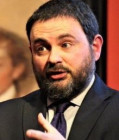We live in an exciting time for American democracy. After a generation in which our political system got locked into rhetoric and voting patterns that turned off most young Americans, politics is cool again. Young Americans have announced that “slactivism” is over, and they are participating in politics in record numbers. A previously unmobilized voting bloc, these young people stand poised to revolutionize politics.
But to use this power responsibly, young Americans must understand the privileges and responsibilities of citizenship.
That’s where we come in. As educators, parents, and citizens, we support S. 2375 to promote civics education in Massachusetts public schools.
American democracy has always depended on widespread and informed voting, and yet we are
doing poorly in both areas among our younger citizens. Young people have recently voted in
disproportionately low numbers: less than 50% of voters between 18 and 29 voted in 2016.
While that is now changing, students are missing out on the sort of education they need to be engaged and effective participants in democracy. In 2015, when they were asked if their students were getting sufficient education in civics, almost 60% of Massachusetts district superintendents said no. There is also a racial and class story buried in these numbers. Nationally, white students from privileged communities are three times more likely to achieve a “proficient” score in civics than poor students or students of color.
S. 2375 addresses the disjunction between our students’ enthusiasm for civic participation and their lack of knowledge of how to go about it. This bill ensures that students will have both information and hands-on experiences that engage them with their communities to solve problems and make policy.
S. 2375 requires that all public schools teach American history and civics education. It integrates civics projects into existing curricula and defers to local communities and their teachers to tailor those experiences to their students.
To level the playing field between wealthy white communities and poorer ones, S. 2375 authorizes the funding necessary through the Civics Project Fund, a public-private partnership. This crucial aspect of the bill ensures professional development for teachers across the state, especially those in struggling districts. This funding addresses the concern that only wealthy schools will be able to adjust to this mandate without seed money, and reinforces the fundamental American principle that everyone should have an equal say in their government.
Finally, S. 2375 will encourage understanding of local issues, participation in the discussion surrounding them, voter registration, and voting.
Massachusetts has always led the nation in public education. We have understood that democracy depends on the active participation of an educated citizenry. In this era, as our politics become increasingly polarized and our societal problems loom ever larger, we must make sure the next generation has the skills to move us forward. Students must have the tools to sift through news sources and the understanding to see civic engagement as a process of debate to reach solutions. Demystifying the world of government and politics will help our children to be principled participants in American life. Studies show that students who are exposed to high-quality civic education are more likely to be informed voters and lifelong participants in political and civic life.
Is it worth the expense to add civic education to Massachusetts public schools?
This question has come up before and been answered definitively. In the 1860s, after political debate had become so polarized it led to war, far-seeing government officials took up this very question at a national level. In the midst of the Civil War, with armies raging in the fields and the Treasury almost empty, congressmen dedicated significant resources to creating the nation’s system of public universities. It was worth the sacrifice, congressmen thought, because the survival of American democracy depended on citizens who understood their rights and duties, and who had the tools to exercise them. The price tag for S. 2375 is smaller, of course, but its principles are no less ambitious.
Sincerely,
Joan Arches, University of Massachusetts Boston
Lawrence Neil Bailis, Brandeis University
Eric Bellone, Suffolk University
Eleanor Berke, Harvard University
Kathryn Parker Boudett, Harvard University
Mary Brolin, Brandeis University
Rachael V. Cobb, Suffolk University
Katina Fontes, Lesley University
Erika Gebo, Suffolk University
Tegan George, Suffolk University
Jody Hoffer Gittell, Brandeis University
Lisa M. Gonsalves, UMass Boston
Sarah E. James, Harvard University
Carrie James, Harvard University
Christina Kulich-Vamvakas, Suffolk University
Susan Lanspery, Brandeis University
Meira Levinson, Harvard School of Education
Helen Marrow, Tufts University
Christopher Martell, Boston University
Patrick McQuillan, Boston College
Alan Melchior, Brandeis University
Erin O'Brien, University of Massachusetts Boston
Anique Olivier-Mason, Brandeis University
Emily Ostrower, Newton Pubic Schools, Retired
Lawrence Overlan, Suffolk University
Erik Owens, Boston College
Ben Railton, Fitchburg State University
Heather Cox Richardson, Boston College
Scott Seider, Boston University
Devin Torossian, Boston College
Tessa Venell, Brandeis University
Marcus Walker, Harvard University
Natasha Warikoo, Harvard University
Mark R. Warren, University of Massachusetts Boston
